
The Italian Communist Party was a communist political party in Italy.
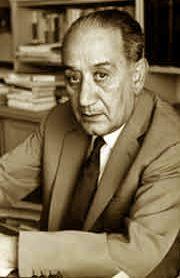
Secondino Tranquilli, known by the pseudonym Ignazio Silone, was an Italian political leader, novelist, and short-story writer, world-famous during World War II for his powerful anti-fascist novels. He was nominated for the Nobel Prize for Literature ten times.

Giuseppe Saragat was an Italian politician who served as the president of Italy from 1964 to 1971.

The Italian Socialist Party was a socialist and later social-democratic political party in Italy, whose history stretched for longer than a century, making it one of the longest-living parties of the country.
The Sammarinese Independent Democratic Socialist Party was a social-democratic political party in San Marino. Its Italian counterpart was the Italian Democratic Socialist Party.
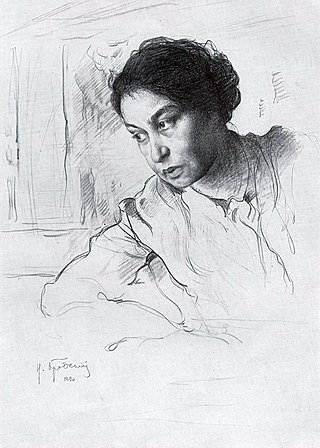
Angelica Balabanoff was a Russian-Italian communist and social democratic activist of Jewish origin. She served as secretary of the Comintern from 1919 to 1920, and later became a political party leader in Italy.

The Italian Labour Union or UIL is a national trade union center in Italy. It was founded in 1950 as a socialist, social democratic, (republican) and laic split from the Italian General Confederation of Labour. It represents almost 2.2 million workers.

The Italian Democratic Socialist Party, also known as Italian Social Democratic Party, was a minor social-democratic political party in Italy. The longest serving partner in government for Christian Democracy, the PSDI had been an important force in Italian politics, before the 1990s decline in votes and members. The party's founder and longstanding leader was Giuseppe Saragat, who served as President of the Italian Republic from 1964 to 1971.

The Unitary Socialist Party was a democratic socialist political party in Italy, active from 1922 to 1930.

Socialist Unity was a social-democratic political alliance in Italy which participated in the key 1948 general election, which decided the post-war direction of Italy.

Tristano Codignola was an Italian politician.
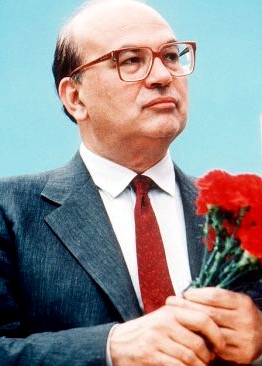
Craxism is a political ideology based on the thought of Italian socialist leader Bettino Craxi, who was Prime Minister of Italy during the 1980s. Craxism was the informal doctrine of the Italian Socialist Party from 1976 to 1994, the year when both the First Republic and the PSI itself were dissolved due to corruption scandals.
The Italian Democratic Socialist Party is a political party in Italy founded in 2004 as the continuation of the historical PSDI of Giuseppe Saragat, so that the new PSDI numbers its congresses in perfect continuity with the old PSDI. The party retains some support locally in the South, especially in Apulia. In the 2005 Apulian regional election the party won 2.2% of the vote along with other two minor parties and got one deputy elected to the Regional Council. The party did not repeat itself five years later, when it was not even able to file a list.

Ivan Matteo Lombardo was an Italian politician.
The Union of Socialists was a social-democratic political party in Italy.
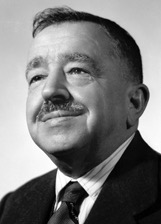
Giuseppe Romita was an Italian socialist politician. In his life he served several times as a cabinet minister and member of the Parliament.

Pietro Bucalossi was an Italian physician and politician. He is remembered for his cancer research, and for his austerity and small government policies while Mayor of Milan in the 1960s.
Socialism in Italy is a political movement that developed during the Industrial Revolution over a course of 120 years, which came to a head during the Revolutions of 1848. At the beginning of the 20th century, there were a growing number of social changes. The outbreak of the First World War accelerated economic differentiation causing a wider wealth gap. This is seen as one of the key factors that triggered the emergence of Italian socialism.

The Maximalist Italian Socialist Party or PSIm, was the residual part of the Italian Socialist Party in exile following the split that occurred during the first phases of the Socialist Convention of Grenoble, held on 16 March 1930, by Pietro Nenni and the fusionist fraction.
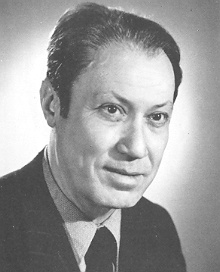
Paolo Vittorelli was the pseudonym used by Raffaello Battino, an Italian journalist-commentator, author and politician of the centre-left. As his public profile grew, he was increasingly referred to as Paolo Battino Vittorelli, the name by which he is identified in most posthumous sources. He engaged actively in antifascist propaganda work during the war years, most of which he spent exiled in Cairo.













